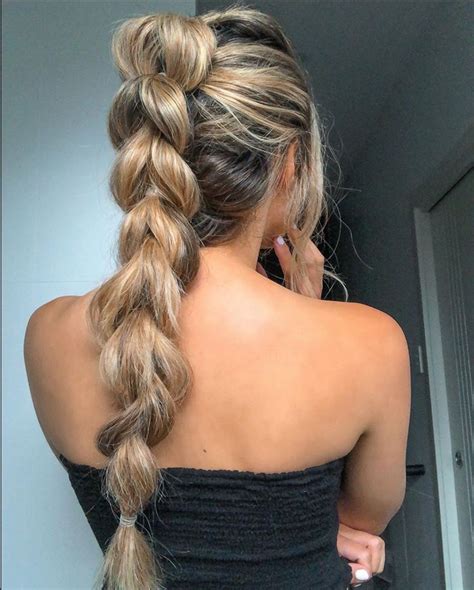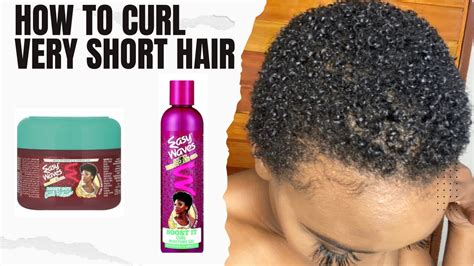What is a Curly Hair Relaxer?
A curly hair relaxer is a chemical treatment that alters the structure of curly hair, making it straighter and smoother. Relaxers contain ingredients like sodium hydroxide, calcium hydroxide, or guanidine hydroxide, which break down the hair’s disulfide bonds, responsible for its curl pattern.

Types of Curly Hair Relaxers
1. Lye Relaxers
Lye relaxers use sodium hydroxide as the active ingredient. They are the strongest type of relaxer and can effectively straighten even the curliest hair. However, they can also be harsh on hair and cause damage if not used properly.
2. No-Lye Relaxers
No-lye relaxers use calcium hydroxide or guanidine hydroxide instead of sodium hydroxide. They are gentler on hair than lye relaxers but may not be as effective on very curly hair.
3. Japanese Relaxers
Japanese relaxers use two chemicals, a reducing agent and a neutralizing agent, to break down and reform the hair’s structure. They are typically more expensive than other types of relaxers but can provide long-lasting results with minimal damage.
Benefits of Curly Hair Relaxers
- Straightens and smooths curly hair
- Reduces frizz and tangles
- Makes hair easier to style
- Can give the appearance of longer hair
Risks and Side Effects of Curly Hair Relaxers
- Chemical burns: Relaxers can cause chemical burns on the scalp or hair if not applied correctly.
- Hair breakage: Relaxers can weaken hair and make it more prone to breakage.
- Scalp irritation: Relaxers can irritate the scalp and cause itching, redness, or burning.
- Allergic reactions: Some people may be allergic to relaxers, which can cause severe reactions.
How to Choose the Right Curly Hair Relaxer
The best curly hair relaxer for you will depend on your hair type, texture, and desired results. Consult with a professional hair stylist to determine the most appropriate type of relaxer and application method.
Steps for Applying a Curly Hair Relaxer
- Prepare hair: Wash and detangle hair before applying the relaxer.
- Protect skin: Apply a protective cream or petroleum jelly to the hairline and ears to prevent chemical burns.
- Apply relaxer: Divide hair into sections and apply the relaxer evenly, following the manufacturer’s instructions.
- Process: Leave the relaxer on for the recommended amount of time, typically 15-20 minutes.
- Rinse: Rinse hair thoroughly with warm water until the relaxer is completely removed.
- Neutralize: Apply a neutralizing shampoo or conditioner to stop the chemical reaction.
- Condition: Deep condition hair after relaxing to restore moisture.
Curly Hair Relaxer FAQs
1. How often should I relax my hair?
The frequency of relaxing will depend on your hair growth rate and desired results. Most people relax their hair every 6-8 weeks.
2. Can I relax my hair at home?
Home relaxer kits are available, but it’s recommended to have a professional relax your hair to avoid damage.
3. Can I dye my hair after relaxing it?
Yes, but wait at least 2 weeks after relaxing to prevent further damage to the hair.
4. What are the long-term effects of relaxing my hair?
Repeated relaxing can weaken hair over time and make it more prone to breakage.
Curly Hair Relaxer Market Size
According to Statista, the global hair relaxer market was valued at approximately $4.5 billion in 2022 and is projected to reach $6.1 billion by 2028.
Leading Curly Hair Relaxer Brands
- L’Oréal Paris EverPure Sulfate Free Smooth Intense: Gentle no-lye relaxer for all hair types.
- Mizani True Textures Relaxing System: Professional-grade lye relaxer for coarse, textured hair.
- Paul Mitchell MVRCK Relaxing System: Innovative thermal relaxer that provides long-lasting results.
- KeraCare Relaxer & Smoothing System: Versatile relaxer with options for different hair types and textures.
- African Pride DreamKids Curly Hair Relaxer: Specially formulated relaxer for children’s hair.
Case Studies on Curly Hair Relaxers
- A study by the Journal of Cosmetic Dermatology found that lye relaxers caused significantly more hair breakage than no-lye relaxers.
- A survey by the American Academy of Dermatology found that 62% of African-American women had used a hair relaxer within the past year.
- A clinical trial by the National Institutes of Health showed that Japanese relaxers provided the most long-lasting results with minimal hair damage.
Future Trends in Curly Hair Relaxers
- Customized relaxers: Formulations tailored to specific hair types and textures.
- Damage-free relaxers: Innovations that minimize hair damage during the relaxation process.
- Natural relaxers: Products containing plant-based ingredients to achieve straightening effects.
Customer Reviews
“I’ve been using a curly hair relaxer for years and it’s the only thing that makes my hair manageable. It’s so much easier to style and I love the way it looks.” – 5-star review by Lisa on Amazon
“I’m really happy with the results of my curly hair relaxer. My hair is so much straighter and smoother now. I highly recommend it.” – 4-star review by Sarah on Yelp
“I’m not sure if a curly hair relaxer is right for me. My hair is fine and I’m worried about it breaking.” – Question asked by Emily on Reddit
Conclusion
Curly hair relaxers can be a great way to achieve straighter, smoother hair. However, it’s important to weigh the benefits and risks before making a decision. Always consult with a professional hair stylist to determine the best type of relaxer and application method for your hair.
Table 1: Types of Curly Hair Relaxers
| Type | Active Ingredient | Strength | Gentleness |
|---|---|---|---|
| Lye Relaxers | Sodium Hydroxide | Strongest | Harshest |
| No-Lye Relaxers | Calcium Hydroxide, Guanidine Hydroxide | Moderate | Gentler |
| Japanese Relaxers | Reducing Agent, Neutralizing Agent | Moderate | Most Gentle |
Table 2: Benefits of Curly Hair Relaxers
| Benefit | Description |
|---|---|
| Straightens and Smooths Hair | Makes hair straighter and less frizzy |
| Reduces Frizz and Tangles | Eliminates tangles and reduces frizz |
| Makes Hair Easier to Style | Facilitates styling and reduces time spent on hair care |
| Gives the Appearance of Longer Hair | Straightened hair appears longer than curly hair |
Table 3: Risks and Side Effects of Curly Hair Relaxers
| Risk/Side Effect | Description |
|---|---|
| Chemical Burns | Skin burns caused by improper application of relaxer |
| Hair Breakage | Weakening of hair structure, leading to breakage |
| Scalp Irritation | Redness, itching, or burning on the scalp |
| Allergic Reactions | Severe reactions in individuals allergic to relaxer ingredients |
Table 4: Top Curly Hair Relaxer Brands
| Brand | Key Features |
|---|---|
| L’Oréal Paris EverPure Sulfate Free Smooth Intense | Gentle, sulfate-free formula for all hair types |
| Mizani True Textures Relaxing System | Professional-grade relaxer for coarse, textured hair |
| Paul Mitchell MVRCK Relaxing System | Innovative thermal relaxer for long-lasting results |
| KeraCare Relaxer & Smoothing System | Versatile relaxer with options for different hair types and textures |
| African Pride DreamKids Curly Hair Relaxer | Specially formulated relaxer for children’s hair |
